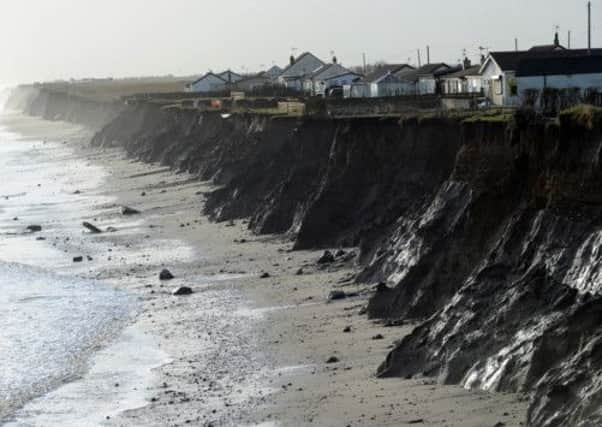Walkers threaten to trample coastal heritage


Battlelines will be drawn this winter between landowners, farmers, and walkers as the former Labour government’s dream of wider public access to the sea shore enters formal consultations.
But a regional forum on coastal issues was told yesterday there was no agency which could “police” the holidaymakers – to whom the Country Code may be a distant memory.
Advertisement
Hide AdAdvertisement
Hide AdUnder the plans, signs and well laid out attractive footpaths would be the only ways of diverting visitors away from sensitive breeding areas for kestrels, terns and other important species.
The ambition was to create a long-distance coastal walk around the country, similar to its controversial policies to enshrine the Rights to Roam in inland Britain.
Yorkshire and Humber are one of five stretches of coast where trails are being developed with the ultimate aim of linking up all the UK’s shores via public footpaths.
Yorkshire will be one of the first areas to bring in the new visitors, however, largely because the region already has a ready-made trail in the Cleveland Way, which is used for 350,000 walks a year.
Advertisement
Hide AdAdvertisement
Hide AdThe new legislation will make it easier to realign the 109-mile route to cope with coastal erosion.
But one of the aims of the scheme will be to encourage people who live in urban areas to enjoy the Great Outdoors.
With this in mind, English Nature will be looking to create a new access for people from Middlesbrough to enjoy the Cleveland Way.
Concerns were raised yesterday at the North Yorkshire and Cleveland Coastal Forum at Scarborough Spa about what would prevent visitors causing problems.
Advertisement
Hide AdAdvertisement
Hide AdThere are fears they will let dogs off the leash in fields containing livestock, walk roughshod over bird colonies, and stray into other sensitive areas.
Andrew Best, Yorkshire’s senior adviser for Natural England, said: “The bottom line is we can’t police it. We are not in a position to police it – nor is there any other organisation which can.”
In County Durham, they had already succeeded in looping the trail around a tern nesting area with signs asking visitors to stick to the path.
“It won’t solve the problem but we can manage people and encourage them,” he added.
Advertisement
Hide AdAdvertisement
Hide AdThe Countryside Code was being relaunched with a special emphasis on coastal walks.
He argued: “There will always be those who want to make mischief. We can’t avoid that. What we can do is educate people. The vast majority will take the line of least resistance on walks.
“But it’s impossible to have someone there ‘on duty’ so to speak.
“It is right, we are trying to encourage non-traditional visitors who don’t normally go for a walk in the countryside to do just that. So there are some challenges there – but education and clear sign posting should help avoid arguments with the land owner.”
Advertisement
Hide AdAdvertisement
Hide AdIn the New Year when the maps of the routes go out to formal consultation. A line will be drawn around the edge of the country and between the line and cliff edges a buffer zone of fields, scrub land and rocks will be laid out where people will be free to picnic and play beach games.
Ironically, Yorkshire – while offering some of the best walks – will be the least to benefit from direct investment.
The bulk of the cash – about £60,000 – will be targeted on developing routes on Teesside and linking Middlesbrough to the Cleveland Way via Saltburn.
Despite crumbling into the sea at a rate of several inches a year, the Cleveland Way has been deemed “fit for purpose”.
Advertisement
Hide AdAdvertisement
Hide AdThe main benefit of the legislation will be to axe the bureaucracy in tinkering with the route so it can automatically adjusted as bits drop off into the North Sea, the audience was told.
After the consultations are over the rights are expected to be introduced in 18 months, Mr Best added.